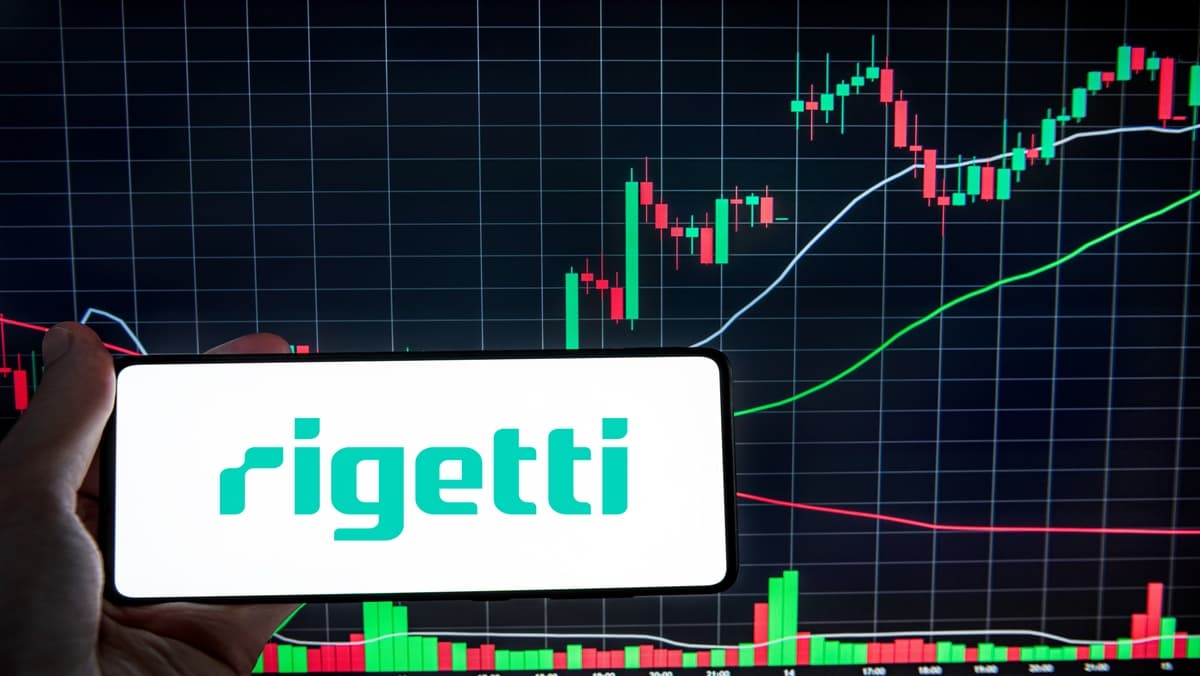Factors
Company Performance: Revenue, profit margins, and growth prospects directly impact investor confidence and stock price.
Market Sentiment: Overall investor optimism or pessimism, influenced by economic news and global events, affects demand for the stock.
Industry Trends: Performance and outlook of the broader transportation and logistics industry influence investor perception of the company.
Economic Conditions: Economic growth or recession impacts demand for transportation services, affecting the company's revenue and profitability.
Regulatory Changes: Government regulations related to transportation, emissions, or trade can affect operational costs and future earnings.
Competitive Landscape: Actions and performance of competitor companies can affect market share and profitability, influencing the stock price.
Company News: Announcements related to contracts, partnerships, acquisitions, or management changes can trigger stock price fluctuations.
Global Events: Geopolitical events, trade wars, or natural disasters affecting supply chains can impact the company's operations and stock.
Financial Health: Debt levels, cash flow, and overall financial stability influence investor confidence and the perceived risk associated with the stock.
Dividend Policy: Dividend payouts and dividend yield attract investors and support the stock price, especially for income-focused investors.
Interest Rates: Higher interest rates can increase borrowing costs, potentially impacting profitability and investment decisions in the stock.
Currency Fluctuations: Changes in exchange rates, particularly if the company has significant international operations, can affect revenue and earnings.
Commodity Prices: Fuel prices and other commodity costs directly affect transportation expenses, impacting profit margins and stock valuation.
Technological Advancements: Adoption of new technologies, automation, and digital solutions can improve efficiency and influence investor perceptions.
Analyst Ratings: Recommendations from financial analysts can influence investor decisions and create upward or downward pressure on the stock price.
Supply Chain Disruptions: Disruptions in global supply chains, due to factors like port congestion or geopolitical events, can impact operations.
Labor Costs: Changes in labor costs, including wages and benefits, can affect the company's expenses and profitability.
Inflation Rates: Higher inflation can increase operating costs and potentially reduce consumer spending on transportation services.
Political Stability: Political instability in regions where the company operates or does business can create uncertainty and affect the stock.
Seasonality: Demand for transportation services may vary depending on the time of year, impacting quarterly results and potentially stock prices.
Management's Guidance: Company's projections for future performance provide insights into expectations and can impact investor confidence.
Mergers and Acquisitions: Potential or actual mergers or acquisitions involving the company can lead to stock price volatility.
Shareholder Activism: Actions by activist shareholders can influence company strategy and management, potentially affecting the stock price.
Insider Trading: Information leaks and illegal trading activities by insiders can lead to sharp stock price movements.
Cybersecurity Risks: Data breaches or cyberattacks can disrupt operations, damage reputation, and negatively affect the stock price.
Insurance Costs: Changes in insurance premiums, related to risks in the transportation sector, can impact operational costs.
Weather Events: Extreme weather conditions can disrupt transportation networks and affect company operations.
Government Subsidies: Government support or subsidies for the transportation industry can positively influence the company's financials.
Logistics Infrastructure: Availability and quality of transportation infrastructure (roads, ports, railways) can impact operational efficiency.
Consumer Confidence: Consumer spending and confidence levels affect demand for goods and services, impacting the need for transportation.
Government Policies: Government policies on infrastructure development and transportation funding can affect the industry's growth.
Energy Prices: Energy prices affecting transportation and logistics cost.
Trade agreements: Trade agreements and other trade policy developments can affect the volume and patterns of global trade, thus transport.
Technology adoption rate: Affects efficiency and cost of transportation.
Climate change regulation: Affects cost and future business models.
Global supply chain dynamics: Affecting cost and efficiency.
Geopolitical risk: Affects trade and supply chain and therefore cost and efficiency.
Tax policy: Tax policies and rates can affect the profitability.
Changes in shipping costs: The price of shipping which could affect the costs.
Investor sentiment: The general mood of investors.
Demand for Shipping: Shipping demand could affect the price.
Supply Chain issues: Global supply chain problems affect stocks.
Competitor activity: Affects stocks based on competition.
Company growth: The growth of the company.
Company debt: High debt would affect the price of the stock.
Global events: Global events could affect the price.
Interest rates: Interest rates affect investments.
Geographic location: Geographic location affects the stock.
Current events: Current events affect the market.
Future events: Future events affect the stock price.
Shipping routes: Shipping routes affect the company.
Pandemics: Pandemics can affect the company.
Labor Market: Labor markets have an effect on stock price.
Social unrest: Social unrest affects stocks.
Political Instability: Political Instability affects stocks.
War: War affects stocks.
Tariffs: Tariffs affect stocks.
Regulations: Regulations affect stock prices.
Sanctions: Sanctions affect stocks.
Supply shocks: Supply shocks affect stocks.
Labor Relations: Labor Relations issues affect the company.
Logistical bottlenecks: Logistical bottlenecks can affect the company.
Economic Slowdown: Economic slowdowns can affect the company.
Global Trade Volumes: Global trade volumes affect stocks.
Fleet Size: Affects the cost.
Stock Price Volatility: Level of volatility affects company stock.
Stock Splits: Stock splits can increase the attractiveness.
Short Selling: Short selling can affect the stock price.
Institutional Ownership: Higher institutional ownership can increase company stock.
Stock Liquidity: How easily it's traded.
Derivatives Trading: Affect the stock price.
Hedge Fund Activity: What hedge funds do.
Index Inclusion: Inclusion could increase the volume.
Share Buybacks: Share buybacks can increase the price.
Pension Fund Investments: Affect stocks.
Sovereign Wealth Fund Activity: Affects stocks.
Foreign Exchange Rates: Affects the stock.
Inflation Expectations: Affects stock prices.
Interest Rate Expectations: Affect stock prices.
Commodity Price Fluctuations: Affect the stock.
Government Debt Levels: Government Debt Levels affect stocks.
Central Bank Policies: Affect stocks.
Quantitative Easing: Affects stocks.
Monetary Policy: Monetary Policy affects stocks.
Fiscal Policy: Fiscal Policy affects stocks.
Geopolitical Tensions: Affect stock prices.
Trade Disputes: Affect stock prices.
Climate Change: Affect stock prices.
Environmental Regulations: Affect stock prices.
Social Responsibility: Social Responsibility affects stock prices.
Corporate Governance: Corporate Governance affects stock prices.
Management Quality: Management Quality affects stock prices.
Brand Reputation: Brand Reputation affects stock prices.
Customer Satisfaction: Customer Satisfaction affects stock prices.
Employee Morale: Employee Morale affects stock prices.
Supply Chain Resilience: Supply Chain Resilience affects stock prices.
Risk Management Practices: Risk Management Practices affect stock prices.
Data Security: Data Security affects stock prices.
Technological Innovation: Technological Innovation affects stock prices.
Digital Transformation: Digital Transformation affects stock prices.
Automation: Automation affects stock prices.
Artificial Intelligence: Artificial Intelligence affects stock prices.
Big Data Analytics: Big Data Analytics affects stock prices.
Cloud Computing: Cloud Computing affects stock prices.
Internet of Things: Internet of Things affects stock prices.
Cybersecurity: Cybersecurity affects stock prices.
Sustainability: Sustainability affects stock prices.
ESG Factors: ESG Factors affect stock prices.
Stakeholder Engagement: Stakeholder Engagement affects stock prices.
Ethical Conduct: Ethical Conduct affects stock prices.
Community Relations: Community Relations affects stock prices.
Corporate Social Responsibility: Corporate Social Responsibility affects stock prices.
Investor Relations: Investor Relations affects stock prices.
Public Relations: Public Relations affects stock prices.
Media Coverage: Media Coverage affects stock prices.
Social Media Sentiment: Social Media Sentiment affects stock prices.
Online Reputation: Online Reputation affects stock prices.
Crisis Management: Crisis Management affects stock prices.
Lobbying Efforts: Lobbying Efforts affects stock prices.
Political Donations: Political Donations affect stock prices.
Regulatory Compliance: Regulatory Compliance affects stock prices.
Legal Issues: Legal Issues affect stock prices.
Lawsuits: Lawsuits affect stock prices.
Fines: Fines affect stock prices.
Penalties: Penalties affect stock prices.
Investigations: Investigations affect stock prices.
Audits: Audits affect stock prices.
Accounting Practices: Accounting Practices affect stock prices.
Financial Reporting: Financial Reporting affects stock prices.
Transparency: Transparency affects stock prices.
Internal Controls: Internal Controls affect stock prices.
Risk Assessment: Risk Assessment affects stock prices.
Fraud Prevention: Fraud Prevention affects stock prices.
Ethics Training: Ethics Training affects stock prices.
Whistleblower Protection: Whistleblower Protection affects stock prices.
Compliance Programs: Compliance Programs affect stock prices.
Corporate Culture: Corporate Culture affects stock prices.
Employee Engagement: Employee Engagement affects stock prices.
Talent Acquisition: Talent Acquisition affects stock prices.
Employee Retention: Employee Retention affects stock prices.
Succession Planning: Succession Planning affects stock prices.
Board Composition: Board Composition affects stock prices.
Independent Directors: Independent Directors affect stock prices.
Board Diversity: Board Diversity affects stock prices.
Executive Compensation: Executive Compensation affects stock prices.
Shareholder Rights: Shareholder Rights affect stock prices.
Proxy Voting: Proxy Voting affects stock prices.
Shareholder Activism: Shareholder Activism affects stock prices.
Corporate Governance Ratings: Corporate Governance Ratings affect stock prices.
Environmental Performance: Environmental Performance affects stock prices.
Carbon Emissions: Carbon Emissions affect stock prices.
Water Usage: Water Usage affects stock prices.
Waste Management: Waste Management affects stock prices.
Pollution Control: Pollution Control affects stock prices.
Resource Efficiency: Resource Efficiency affects stock prices.
Climate Change Mitigation: Climate Change Mitigation affects stock prices.
Climate Change Adaptation: Climate Change Adaptation affects stock prices.
Renewable Energy: Renewable Energy affects stock prices.
Energy Efficiency: Energy Efficiency affects stock prices.
Green Building: Green Building affects stock prices.
Sustainable Transportation: Sustainable Transportation affects stock prices.
Circular Economy: Circular Economy affects stock prices.
Product Stewardship: Product Stewardship affects stock prices.
Extended Producer Responsibility: Extended Producer Responsibility affects stock prices.
Supply Chain Sustainability: Supply Chain Sustainability affects stock prices.
Fair Labor Practices: Fair Labor Practices affect stock prices.
Human Rights: Human Rights affect stock prices.
Community Investment: Community Investment affects stock prices.
Philanthropy: Philanthropy affects stock prices.
Diversity and Inclusion: Diversity and Inclusion affects stock prices.
Employee Health and Safety: Employee Health and Safety affects stock prices.
Product Safety: Product Safety affects stock prices.
Data Privacy: Data Privacy affects stock prices.
Cybersecurity: Cybersecurity affects stock prices.
Ethical Marketing: Ethical Marketing affects stock prices.
Responsible Advertising: Responsible Advertising affects stock prices.
Consumer Protection: Consumer Protection affects stock prices.
Conflict Minerals: Conflict Minerals affect stock prices.
Bribery and Corruption: Bribery and Corruption affect stock prices.
Antitrust Compliance: Antitrust Compliance affects stock prices.
Insider Trading: Insider Trading affects stock prices.
Money Laundering: Money Laundering affects stock prices.
Tax Evasion: Tax Evasion affects stock prices.
Sanctions Compliance: Sanctions Compliance affects stock prices.
Trade Compliance: Trade Compliance affects stock prices.
Regulatory Reporting: Regulatory Reporting affects stock prices.
Legal Risk Management: Legal Risk Management affects stock prices.
Compliance Culture: Compliance Culture affects stock prices.
Ethics Hotline: Ethics Hotline affects stock prices.
Whistleblower Program: Whistleblower Program affects stock prices.
Employee Training: Employee Training affects stock prices.
Communication and Transparency: Communication and Transparency affects stock prices.
Stakeholder Engagement: Stakeholder Engagement affects stock prices.
Reputation Management: Reputation Management affects stock prices.
Crisis Communication: Crisis Communication affects stock prices.
Brand Value: Brand Value affects stock prices.
Customer Loyalty: Customer Loyalty affects stock prices.
Market Share: Market Share affects stock prices.
Competitive Advantage: Competitive Advantage affects stock prices.
Pricing Strategy: Pricing Strategy affects stock prices.
Product Innovation: Product Innovation affects stock prices.
Research and Development: Research and Development affects stock prices.
Intellectual Property: Intellectual Property affects stock prices.
Partnerships: Partnerships affects stock prices.
Mergers and Acquisitions: Mergers and Acquisitions affect stock prices.
Divestitures: Divestitures affect stock prices.
Joint Ventures: Joint Ventures affect stock prices.
Strategic Alliances: Strategic Alliances affect stock prices.
Capital Allocation: Capital Allocation affects stock prices.
Investment Decisions: Investment Decisions affect stock prices.
Financial Performance: Financial Performance affects stock prices.
Revenue Growth: Revenue Growth affects stock prices.
Profitability: Profitability affects stock prices.
Cash Flow: Cash Flow affects stock prices.
Debt Levels: Debt Levels affect stock prices.
Return on Investment: Return on Investment affects stock prices.
Earnings Per Share: Earnings Per Share affects stock prices.
Price-to-Earnings Ratio: Price-to-Earnings Ratio affects stock prices.
Dividend Yield: Dividend Yield affects stock prices.
Book Value: Book Value affects stock prices.
Market Capitalization: Market Capitalization affects stock prices.
Enterprise Value: Enterprise Value affects stock prices.
Valuation Metrics: Valuation Metrics affect stock prices.
Financial Ratios: Financial Ratios affect stock prices.
Financial Analysis: Financial Analysis affects stock prices.
Investor Confidence: Investor Confidence affects stock prices.
Market Sentiment: Market Sentiment affects stock prices.
Economic Outlook: Economic Outlook affects stock prices.
Industry Trends: Industry Trends affect stock prices.
Geopolitical Events: Geopolitical Events affect stock prices.
Regulatory Changes: Regulatory Changes affect stock prices.
Technological Disruptions: Technological Disruptions affect stock prices.
Supply Chain Issues: Supply Chain Issues affect stock prices.
Labor Market Conditions: Labor Market Conditions affect stock prices.
Inflation: Inflation affects stock prices.
Interest Rates: Interest Rates affect stock prices.
Currency Fluctuations: Currency Fluctuations affect stock prices.
Commodity Prices: Commodity Prices affect stock prices.
Energy Costs: Energy Costs affect stock prices.
Climate Change Impacts: Climate Change Impacts affect stock prices.
Government Policies: Government Policies affect stock prices.
Social Trends: Social Trends affect stock prices.
Demographic Shifts: Demographic Shifts affect stock prices.
Consumer Behavior: Consumer Behavior affects stock prices.
Global Trade: Global Trade affects stock prices.
International Relations: International Relations affect stock prices.
Political Stability: Political Stability affects stock prices.
Legal Environment: Legal Environment affects stock prices.
Ethical Considerations: Ethical Considerations affect stock prices.
Social Responsibility Initiatives: Social Responsibility Initiatives affect stock prices.
Environmental Sustainability Programs: Environmental Sustainability Programs affect stock prices.
Corporate Governance Practices: Corporate Governance Practices affect stock prices.
Management Team Quality: Management Team Quality affects stock prices.
Brand Reputation: Brand Reputation affects stock prices.
Customer Satisfaction Levels: Customer Satisfaction Levels affect stock prices.
Employee Morale and Engagement: Employee Morale and Engagement affect stock prices.
Supply Chain Resilience: Supply Chain Resilience affects stock prices.
Risk Management Effectiveness: Risk Management Effectiveness affects stock prices.
Data Security Measures: Data Security Measures affect stock prices.
Technological Innovation Capabilities: Technological Innovation Capabilities affect stock prices.
Digital Transformation Strategies: Digital Transformation Strategies affect stock prices.
Automation Adoption Rates: Automation Adoption Rates affect stock prices.
Artificial Intelligence Implementations: Artificial Intelligence Implementations affect stock prices.
Big Data Analytics Utilization: Big Data Analytics Utilization affect stock prices.
Cloud Computing Infrastructure: Cloud Computing Infrastructure affect stock prices.
Internet of Things Applications: Internet of Things Applications affect stock prices.
Cybersecurity Defenses: Cybersecurity Defenses affect stock prices.
Sustainability Reporting Standards: Sustainability Reporting Standards affect stock prices.
ESG Disclosure Practices: ESG Disclosure Practices affect stock prices.
Stakeholder Communication Strategies: Stakeholder Communication Strategies affect stock prices.
Reputation Risk Management Programs: Reputation Risk Management Programs affect stock prices.
Crisis Response Capabilities: Crisis Response Capabilities affect stock prices.
Financial Reporting Accuracy: Financial Reporting Accuracy affects stock prices.
Internal Control Effectiveness: Internal Control Effectiveness affect stock prices.
Audit Quality: Audit Quality affects stock prices.
Legal Compliance Adherence: Legal Compliance Adherence affect stock prices.
Ethical Conduct Standards: Ethical Conduct Standards affect stock prices.
Social Responsibility Initiatives: Social Responsibility Initiatives affect stock prices.
Community Involvement Programs: Community Involvement Programs affect stock prices.
Philanthropic Contributions: Philanthropic Contributions affect stock prices.
Diversity and Inclusion Efforts: Diversity and Inclusion Efforts affect stock prices.
Employee Health and Safety Records: Employee Health and Safety Records affect stock prices.
Product Safety Standards: Product Safety Standards affect stock prices.
Data Privacy Protections: Data Privacy Protections affect stock prices.
Cybersecurity Threat Intelligence: Cybersecurity Threat Intelligence affect stock prices.
Sustainable Supply Chain Management: Sustainable Supply Chain Management affect stock prices.
Fair Labor Practice Enforcement: Fair Labor Practice Enforcement affect stock prices.
Human Rights Due Diligence: Human Rights Due Diligence affect stock prices.
Conflict Minerals Sourcing Policies: Conflict Minerals Sourcing Policies affect stock prices.
Bribery and Corruption Prevention Measures: Bribery and Corruption Prevention Measures affect stock prices.
Antitrust Compliance Training: Antitrust Compliance Training affect stock prices.
Insider Trading Prevention Programs: Insider Trading Prevention Programs affect stock prices.
Money Laundering Deterrence Systems: Money Laundering Deterrence Systems affect stock prices.
Tax Evasion Mitigation Strategies: Tax Evasion Mitigation Strategies affect stock prices.
Sanctions Compliance Procedures: Sanctions Compliance Procedures affect stock prices.
Trade Compliance Protocols: Trade Compliance Protocols affect stock prices.
Regulatory Reporting Accuracy and Timeliness: Regulatory Reporting Accuracy and Timeliness affect stock prices.
Legal Risk Management Frameworks: Legal Risk Management Frameworks affect stock prices.
Compliance Culture Promotion Initiatives: Compliance Culture Promotion Initiatives affect stock prices.
Ethics Hotline and Whistleblower Program Operation: Ethics Hotline and Whistleblower Program Operation affect stock prices.
Employee Training on Ethics and Compliance: Employee Training on Ethics and Compliance affect stock prices.
Transparent Communication Practices: Transparent Communication Practices affect stock prices.
Stakeholder Engagement Effectiveness: Stakeholder Engagement Effectiveness affect stock prices.
Reputation Management Strategies: Reputation Management Strategies affect stock prices.
Crisis Communication Plans: Crisis Communication Plans affect stock prices.
Effective Management : The management of the company and its abilities.
Market Dynamics : The market the company operates in.
Competition: The competition the company faces in the market.
Supply Chain: The efficiency of the company's supply chain.
Financial Health: The debt and financial aspects of the company.
Global Economy: The global state of the economy.
Regulatory: The regulatory rules the company must follow.
Sustainability: The sustainability and environmental aspect of the company.
Social Impact: The social impact of the company.
Technological advancements: The technological state of the company.
Market sentiment: The market sentiment of the stock.
Investor confidence: The investors confidence in the company.
Company News : Any news related to the company.
Analyst Ratings: Ratings of the company based on analysts.
Economic indicators: Economic indicators related to the stock.
Industry benchmarks: Benchmarks related to the industry of the stock.
Geopolitical factors: Geopolitical issues related to the stock.
Unexpected events: Any unexpected events that occur.
Dividend Policy: Dividend policy has an effect on the price.
Interest rate changes: Interest rate changes can affect stock price.
Inflation rate changes: Inflation rate changes can affect stock prices.
Currency fluctuations: Currency fluctuations can affect stock prices.
Commodity price fluctuations: Commodity price fluctuations can affect stocks.
Government Policies: Government policies have an effect on the stock price.
Environmental regulations: Environmental regulations can affect stock price.
Social regulations: Social regulations can affect stock prices.
Energy policies: Energy policies can affect stock prices.
Trade agreements: Trade agreements can affect stock prices.
Taxation policies: Taxation policies can affect stock prices.
Monetary Policies: Monetary policies can affect stock prices.
Fiscal Policies: Fiscal policies can affect stock prices.
International Relations: International relations affect stock prices.
Political Stability: Political stability affects stock prices.
Global Pandemics: Global pandemics can affect stock prices.
Natural Disasters: Natural disasters can affect stock prices.
Cyber Security breaches: Cyber security breaches affect stock prices.
Data Security Issues: Data security issues can affect stock prices.
Brand Reputation: Brand reputation affects stock prices.
Customer loyalty: Customer loyalty affects stock prices.
Customer satisfaction: Customer satisfaction affects stock prices.
Social media sentiment: Social media sentiment affects stock prices.
Online reviews: Online reviews affect stock prices.
Word-of-mouth: Word-of-mouth affects stock prices.
Marketing campaigns: Marketing campaigns affect stock prices.
Advertising strategies: Advertising strategies affect stock prices.
Sales performance: Sales performance affects stock prices.
New product launches: New product launches affect stock prices.
Product innovation: Product innovation affects stock prices.
Competitive landscape: The competitive landscape affects stock prices.
Market competition: The market competition affects stock prices.
Supplier relationships: Supplier relationships affect stock prices.
Supply chain disruptions: Supply chain disruptions affect stock prices.
Logistics challenges: Logistics challenges affect stock prices.
Distribution network: Distribution network affects stock prices.
Inventory management: Inventory management affects stock prices.
Production costs: Production costs affect stock prices.
Operating expenses: Operating expenses affect stock prices.
Capital expenditures: Capital expenditures affect stock prices.
Research and development: Research and development affects stock prices.
Innovation investments: Innovation investments affect stock prices.
Technological advancements: Technological advancements affect stock prices.
Automation initiatives: Automation initiatives affect stock prices.
Digitalization efforts: Digitalization efforts affect stock prices.
Sustainability initiatives: Sustainability initiatives affect stock prices.
Environmental impact: Environmental impact affects stock prices.
Social responsibility: Social responsibility affects stock prices.
Corporate governance: Corporate governance affects stock prices.
Ethical conduct: Ethical conduct affects stock prices.
Transparency policies: Transparency policies affect stock prices.
Risk management: Risk management affects stock prices.
Crisis management: Crisis management affects stock prices.
Legal compliance: Legal compliance affects stock prices.
Regulatory reporting: Regulatory reporting affects stock prices.
Financial stability: Financial stability affects stock prices.
Cash flow management: Cash flow management affects stock prices.
Debt management: Debt management affects stock prices.
Return on equity: Return on equity affects stock prices.
Earnings per share: Earnings per share affect stock prices.
Dividend yield: Dividend yield affects stock prices.
Price-to-earnings ratio: Price-to-earnings ratio affects stock prices.
Book value per share: Book value per share affects stock prices.
Market capitalization: Market capitalization affects stock prices.
Enterprise value: Enterprise value affects stock prices.
Valuation analysis: Valuation analysis affects stock prices.
Financial forecasting: Financial forecasting affects stock prices.
Investment strategies: Investment strategies affect stock prices.
Portfolio allocation: Portfolio allocation affects stock prices.
Hedge fund activity: Hedge fund activity affects stock prices.
Institutional ownership: Institutional ownership affects stock prices.
Retail investor sentiment: Retail investor sentiment affects stock prices.
Social media influence: Social media influence affects stock prices.
News media coverage: News media coverage affects stock prices.
Analyst recommendations: Analyst recommendations affect stock prices.
Expert opinions: Expert opinions affect stock prices.
Stock market trends: Stock market trends affect stock prices.
Economic cycles: Economic cycles affect stock prices.
Interest rate environment: Interest rate environment affects stock prices.
Inflationary pressures: Inflationary pressures affect stock prices.
Currency exchange rates: Currency exchange rates affect stock prices.
Commodity market fluctuations: Commodity market fluctuations affect stock prices.
Geopolitical risks: Geopolitical risks affect stock prices.
Political instability: Political instability affects stock prices.
Trade wars: Trade wars affect stock prices.
Global economic slowdown: Global economic slowdown affects stock prices.
Recession fears: Recession fears affect stock prices.
Market volatility: Market volatility affects stock prices.
Investor sentiment shifts: Investor sentiment shifts affect stock prices.
Black swan events: Black swan events affect stock prices.
Unforeseen circumstances: Unforeseen circumstances affect stock prices.
Global News: The state of the global news.
Investor Relations: The state of investor relations.
Brand Perception: How the brand is perceived in the public.
Insider Ownership: Insider ownership of the company and the amount.
Shareholder structure: The shareholder structure of the company.
Mergers and Acquisitions speculation: Any speculation about mergers and acquisitions.
Stock splits: Any stock splits that occur.
Economic Forecasts: Forecasts in the stock.
Management Changes : Management changes related to the company.
Growth potential: The growth potential of the company.
Stock market conditions: The stock market conditions.
Current events: Current events affect stocks.
Future expectations: Future expectations affect stocks.
Macroeconomic Conditions: Macroeconomic conditions can affect stocks.
Company Financial Performance: Company Financial Performance affects stocks.
Sector Performance: Sector performance can affect stocks.
Supply Chain Management: How the company manages supply chain can affect stock.
Logistics efficiency: Logistics Efficiency and supply chains are very important.
Energy Costs : Energy costs affect operation and stock prices.
Competition: Competition affects the company stock price.
Regulatory Environment: Regulatory environment could affect the stock price.
Sustainability Efforts: Sustainability and social impacts of the stock can influence the company.
Technological Innovation: Innovation can affect the company stock price.
Global Trade : Global trade issues affect many company stock prices.
Interest Rates: Interest rates influence stock prices.
Inflation: Inflation impacts the economy and therefore stocks.
Currency fluctuations: Currency fluctuations affect stocks.
Political Risk: Political risk affects stock prices.
Investor Sentiment: Investor sentiment influences the market.
Analyst ratings: Analyst ratings influence stocks.
News Headlines: Any news that is happening.
Economic data releases: Economic data releases can affect stock.
Company announcements: News announcements from the company.
Unforeseen Events: Anything that can happen that is unexpected.
Company guidance: The company giving guidance affects stocks.
Earnings Reports: Earnings reports are a big reason why a stock can go up or down.
Debt levels: The debt levels of the company.
Market Trends: Current market trends.
Macroeconomics: The macroeconomics of stocks.














